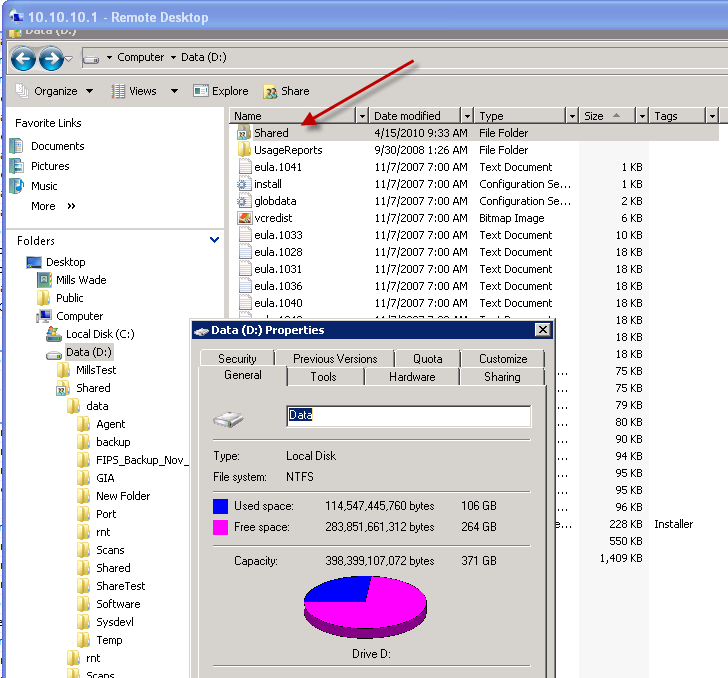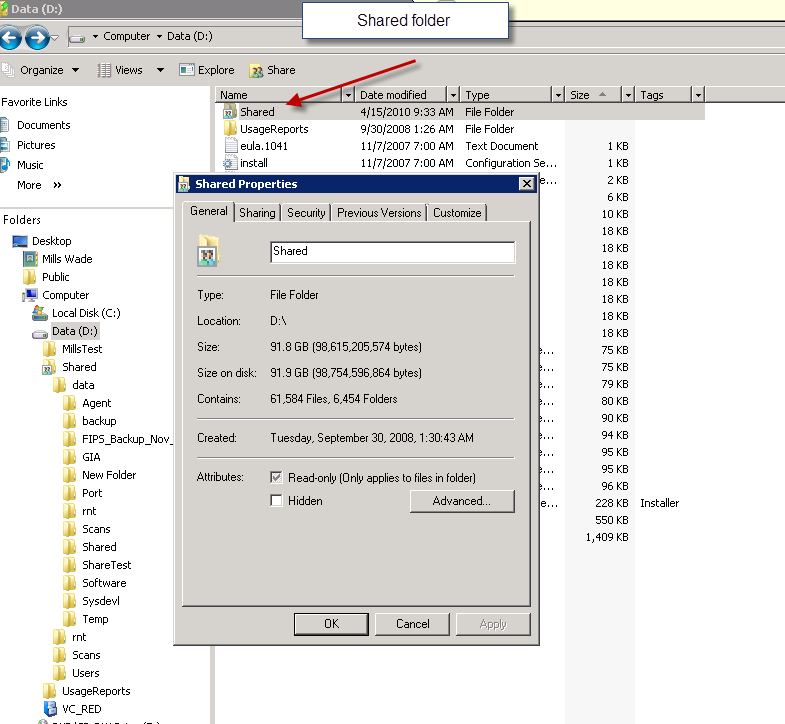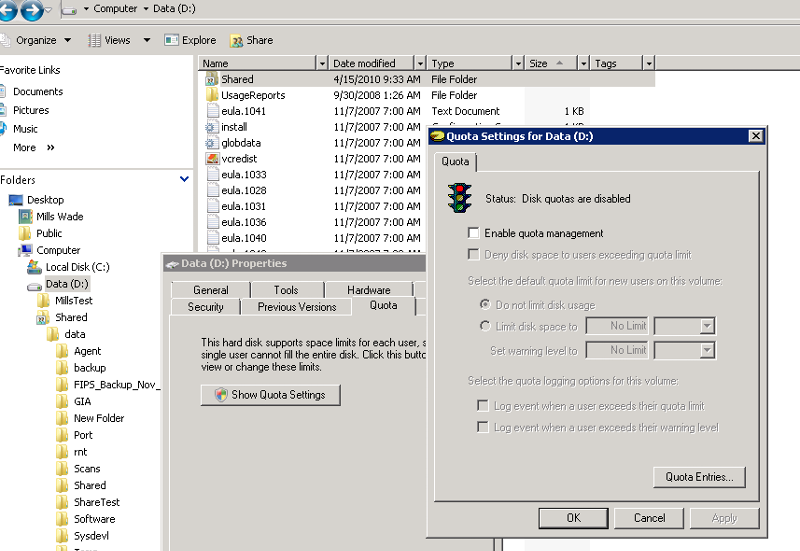wademi
asked on
How do I increased the size of a shared folder in Windows Server 2008
I have a shared folder on my Windows 2008 server. When I go to a client and look at the properties of the mapped drive I notice that I only have 1gb of storgage space left. I cant seem to figure out how to increase the size of the mapped drive.
Can someone help?
Can someone help?
Is there a quota on the shared drive? You may be seeing that limit.
ASKER
I checked the Windows server 2008 File Server Resource Managemen and there is a Quota on the drive where the shared folder is created from(D:). The drive has 371gb of free space. On my server I have a folder on D:\Share
The folder "Share" is shared as the F: drive on the clients. I would like to increase the size of the F: drive.
I don't see any quota for F:
The folder "Share" is shared as the F: drive on the clients. I would like to increase the size of the F: drive.
I don't see any quota for F:
You have to make the changes on the server. Right click on D: drive -> Quota tab
ASKER
ShareefHuddle: I checked the quota settings for the D: drive and the " Enable quota management" option is unchecked.
"... and there is a Quota on the drive..."
"... and the " Enable quota management" option is unchecked."
Which is it? If there's a quota on the drive, change it and see if that makes a difference. Be careful though, because you're changing the quota for everything on the drive, not just your shared folder.
"... and the " Enable quota management" option is unchecked."
Which is it? If there's a quota on the drive, change it and see if that makes a difference. Be careful though, because you're changing the quota for everything on the drive, not just your shared folder.
Is this in a SBS environment? Or was it at one time? Check GPO settings
With Windows 2008, you also need to worry about Folder quotas. You'll be able to check those settings in the File Server Resource Manager under Administrative Tools.
Oh jeez. I need to pay attention :S Let me re-read this whole thing :D
Okay. So, if I'm reading this right, you have a Folder Quota enabled. I can't tell if the quota is on the drive itself or the share, but if you open up Quota Management in File Server Resource Manager and select Quotas, you can view which folders have a quota assigned to them. The Quota Type column will tell you if the quota is hard or soft. A Hard quota won't allow the amount of data in the share to go above the value in the Limit column. Soft quota will just send a warning when you breach the quota. If you right click on the folder you can select the option to Edit Quota Properties. From there you can increase the size or change it to a soft or hard quota, depending on what you need.
ASKER
Hi guys I attached an image of the File Server Resource Manger. The drive where the share is on is fine in terms of storage(D:). I am just trying to increase the size of the folder that's shared .
11-22-2010-3-38-41-PM.png
11-22-2010-3-38-41-PM.png
You should be able to right-click on the drive letter and bring up a properties dialog where you can change the size of the quota, presuming there's a usage limit.
ASKER
When I right click on the shared folder on both the windows server and from a client, there is not quota tab. I attached another screen shot of the actual share. The image shows the properties of the the share. I thought this was going to be simple fix but apparently not.
11-22-2010-4-55-21-PM.png
11-22-2010-4-55-21-PM.png
You won't be able to modify the quota from the client. If the quota isn't on the server share itself, it may be on the server drive. Try looking at the properties of the drive on the server.
Have you tried putting more than 1GB of data on the share? Maybe the capacity being reported is erroneous...
ASKER
I haven't tried putting more than 1gb of data on the share. Is there any othe r place to set the size on a share?
ASKER CERTIFIED SOLUTION
membership
This solution is only available to members.
To access this solution, you must be a member of Experts Exchange.
ASKER
Workaround


